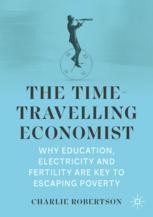Hello and welcome to the latest Zitamar Podcast, featuring news and views on Mozambique’s political and economic outlook, from the Zitamar team and special guests.
The news round-up focuses on three big stories from the past week. Contributing editor Fernando Lima provides his take on the fuel price rises and the urban transport strikes that have ensued, and looks at how the government can and should respond to them.
He also assesses the likely impact of coal miner Jindal’s decision to quit using the Sena rail line to take coal from Tete to the port of Beira, switching instead to its recently acquired export terminal at Nacala. The move is more bad news for Beira and the province of Sofala as a whole.
READ: Jindal drops Beira corridor to send all its coal via Nacala (£)
Then, Zitamar reporter Tom Gould gives us the inside line on the news that Plexus Cotton is ready to walk away from Cabo Delgado, potentially leaving tens of thousands of farmers broke and angry – the opposite of what the government is trying to achieve in the troubled province. Tom was at the Chatham House meeting where Plexus raised the alarm – though we understand talks are ongoing to keep Plexus’ Mozambican operation afloat.
READ: Cabo Delgado cotton farmers on the brink as Plexus warns it can't go on
This week features an interview with Charlie Robertson (Twitter’s @RencapMan) on how Mozambique’s high fertility level could be leading the country into another debt crisis — and how the way to escape the trap is to drastically improve levels of education.
Charlie is chief economist at Renaissance Capital and has been covering Africa for over 10 years. His new book, The Time-Travelling Economist, brings together much of what he has learned over that period, and the conclusions he has drawn – in particular the key roles of fertility, education, and electricity in determining development outcomes.


The book is available to buy on Amazon here, in digital format here, and the whole introduction can be read for free here. The opinion piece which kicked off our conversation is online here: Sociopathic economists and the coming high fertility crisis.
Sign up to our newsletter at www.zitamarnews.substack.com, or through our main website www.zitamar.com, to receive this podcast by email, or you can also find us on podcast apps and on Spotify, which is currently perhaps the easiest way of subscribing to the show and making sure you don’t miss an episode.
Until the next time.









Share this post